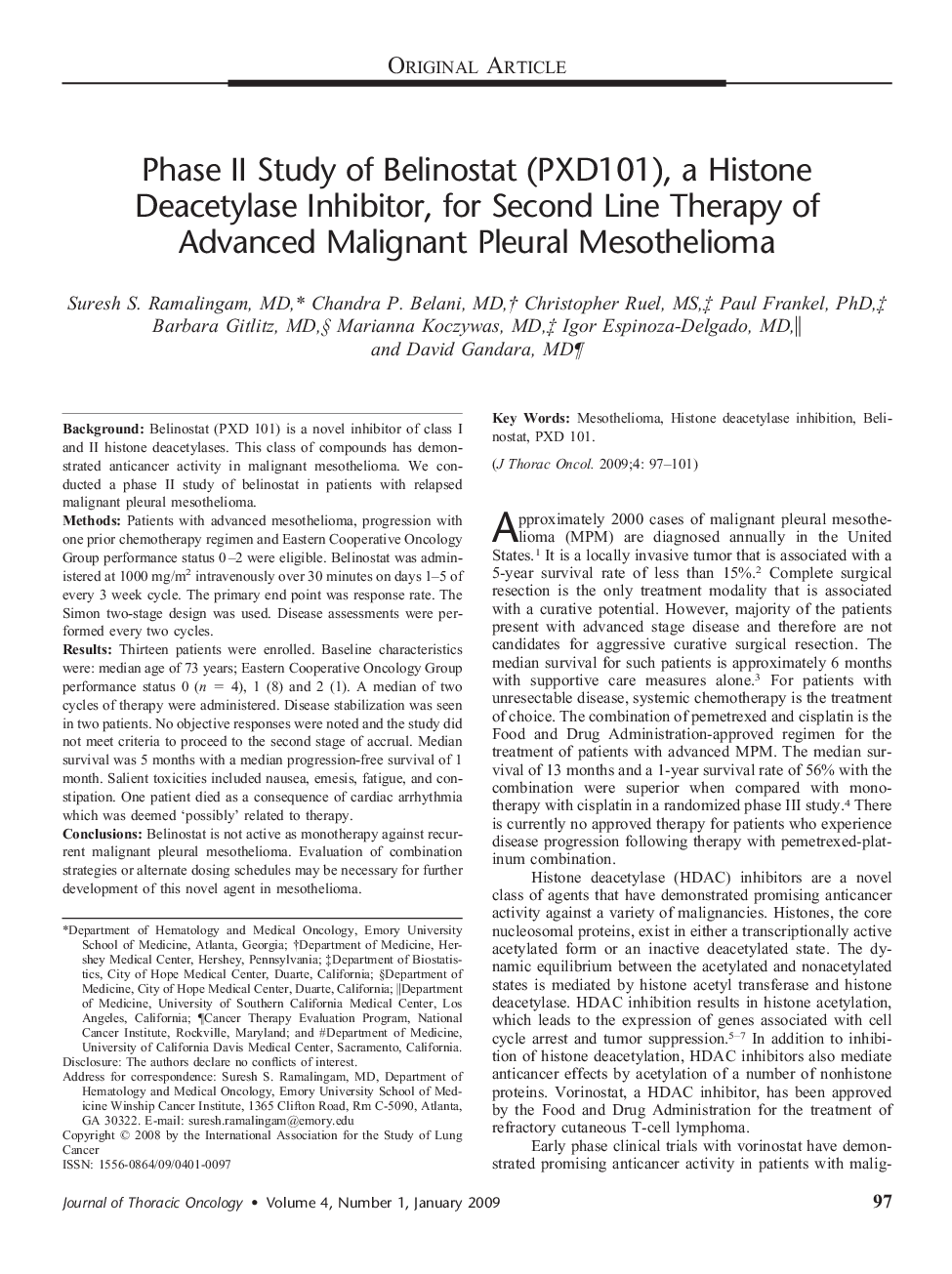| Article ID | Journal | Published Year | Pages | File Type |
|---|---|---|---|---|
| 3992135 | Journal of Thoracic Oncology | 2009 | 5 Pages |
Background:Belinostat (PXD 101) is a novel inhibitor of class I and II histone deacetylases. This class of compounds has demonstrated anticancer activity in malignant mesothelioma. We conducted a phase II study of belinostat in patients with relapsed malignant pleural mesothelioma.Methods:Patients with advanced mesothelioma, progression with one prior chemotherapy regimen and Eastern Cooperative Oncology Group performance status 0–2 were eligible. Belinostat was administered at 1000 mg/m2 intravenously over 30 minutes on days 1–5 of every 3 week cycle. The primary end point was response rate. The Simon two-stage design was used. Disease assessments were performed every two cycles.Results:Thirteen patients were enrolled. Baseline characteristics were: median age of 73 years; Eastern Cooperative Oncology Group performance status 0 (n = 4), 1 (8) and 2 (1). A median of two cycles of therapy were administered. Disease stabilization was seen in two patients. No objective responses were noted and the study did not meet criteria to proceed to the second stage of accrual. Median survival was 5 months with a median progression-free survival of 1 month. Salient toxicities included nausea, emesis, fatigue, and constipation. One patient died as a consequence of cardiac arrhythmia which was deemed ‘possibly’ related to therapy.Conclusions:Belinostat is not active as monotherapy against recurrent malignant pleural mesothelioma. Evaluation of combination strategies or alternate dosing schedules may be necessary for further development of this novel agent in mesothelioma.
